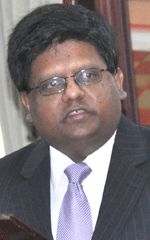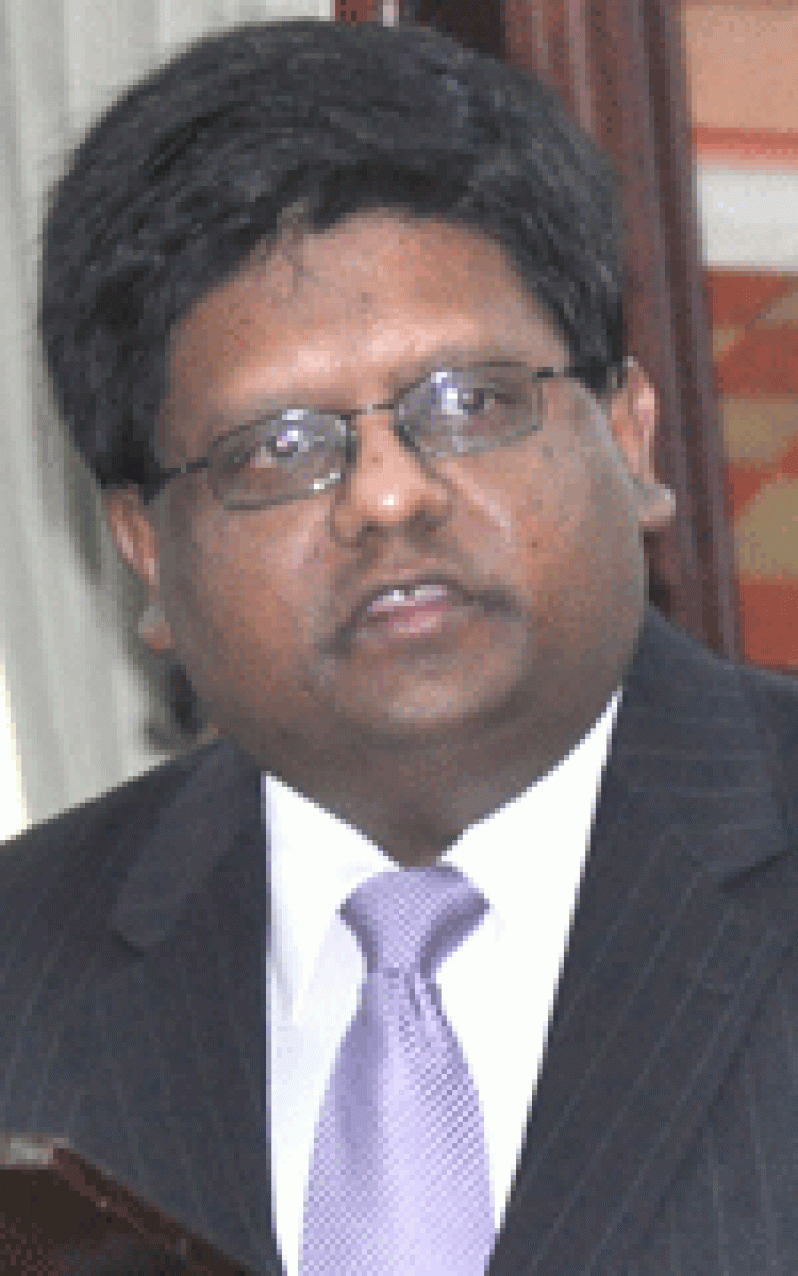THE Ministry of Finance yesterday held a training and discussion workshop on strategic planning which targeted Permanent Secretaries, Deputy Permanent Secretaries and other financial administrators from the various Ministries and Public Service agencies at the Bank of Guyana.
 “We regard the development of strategic plans as an indispensible requirement for strengthened management in each of the sectors and in each of the budget agencies…but this is not to be regarded as a stand-alone exercise…this government has, over the last decade or so, embarked on an ambitious comprehensive plan to strengthen public financial management,” stated Minister of Finance, Dr. Ashni Singh.
“We regard the development of strategic plans as an indispensible requirement for strengthened management in each of the sectors and in each of the budget agencies…but this is not to be regarded as a stand-alone exercise…this government has, over the last decade or so, embarked on an ambitious comprehensive plan to strengthen public financial management,” stated Minister of Finance, Dr. Ashni Singh.
In this regard, the minister used as reference the amendments to Guyana’s Constitution in 2001 which included the establishment of Standing Sectoral Committees in the Parliament that were given, by virtue of the 2001 amendments, a mandate to exercise Parliamentary oversight over sectoral administration.
He noted that this also set the basis for the next wave of reform which comprises legislative interventions such as the enactment of a modern budget law – the Fiscal Management and Accountability Act of 2003 which is accompanied by the Procurement Act of 2003 and the Audit Act of 2004. These formed the principal pillars for the legislative framework for public financial management which was followed by other institutional capacity building mechanisms such as the introduction of technology and performance links to budgetary allocations.
“At the political level the imperative to manage more effectively has resonated in every major political speech that we would have seen…the President no less a person has emphasised the need for more effective management, more timely accomplishment of results in so many of his main speeches, for example his speech at the opening of the 10th Parliament of Guyana,” the minister pointed out.
Minister Singh also expressed his deep satisfaction with the number of senior administrators from within the government who attended the workshop. He noted that their presence is an indication of the level of importance they attach to the subject of the workshop.
“The subject of strategic planning, results based management, medium – term expenditure frameworks, programme performance indicators could not possibly be more topical than it is in today’s environment because emphasis on achievement of outcome and results is the latest thinking in public financial management. That is the case in the hours of academia and amongst development practitioners and public financial management practitioners, and without a doubt, management for results is the current theme, and current thinking is that one no longer just goes away and manages one’s budget resources without due regard to the relationship with results and what one needs to achieve,” he said.
The minister explained that now is the time that due regard is paid to the strategic framework within which managers operate, the objectives that are being pursued by the respective agencies and what needs to be done or what strategies need to be implemented in order to achieve those objectives and manage the available resources optimally.
“We operate today in an environment of finite fiscal resources; everyday agencies are competing for scarce resources,” Minister Singh said. He added that while he believes that the managers have never really managed to get all of the resources they requested in the budgeting process, not because the budget director or the Minister of Finance are people who are not generous or sympathetic to their cause, but because of the reality which points to the fact that there are finite resources that need to be allocated among competing demands/sectors.
The minister illustrated that the same decisions that are made at the Finance Ministry are made in the various ministries which also have to make decisions as to how they allocate funding to the various programmes or competing needs. The first two sectors that were engaged in the development of strategic planning were the Ministries of Health and Education.
“Constantly as administrators you are confronted with the need to identify the most effective use of resources and the need to ensure that resources allocated are managed as efficiently and effectively as possible…that is the reality,” the Finance Minister posited.
He explained that given this reality at the macro and agency level, it is absolutely imperative that they manage within a strategic framework. “That you have within your agency a strategic plan that identifies very clearly what your objectives are, what your key indicators of those objectives would be, what targets you have set yourselves and what are their costs…only then would you have a credible coherent road map within which to navigate as you make these daily decisions that confront you and given the reality of our current demand this need is not one that can be ignored,” Minister Singh said. This is even more important because of the level of scrutiny by the citizenry and the Parliament.
Dr. Frederic Martin of IDEA International, who facilitated the workshop, noted that strategic planning is the starting point of any exercise done by managers, and takes into consideration budgeting issues. Strategic planning is a means of identifying medium to long-term vision which guides the actions of institutions.
He commended the government for arranging the workshop particularly since all financially related institutions need a strategic plan as a reference point to be used every day to guide everyday actions. In this regard, he told the participants that they play a key role in the process.
The workshop is one of many capacity building sessions and intends to increase participants’ understanding of what strategic planning entails and its importance for the country/sector/region/institution and managers, builds capacity in strategic planning concepts and methods, discuss the current situation of strategic planning in the public sector in Guyana and the major challenges being encountered, present a step by step process for strategic planning and identifies elements of an action plan to improve strategic planning in Guyana.



.jpg)








